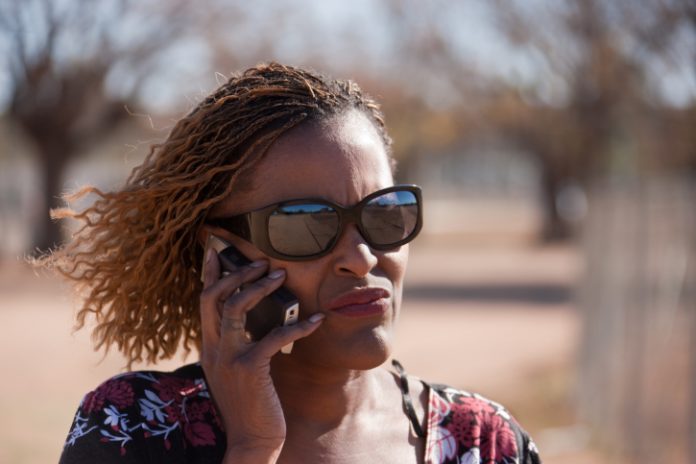Discussions about creating an enabling environment to take mobile commerce to the next level in Africa typically revolve around regulation, standards and the technology itself, such as interoperability and 4G systems. One important ingredient for m-commerce expansion often left out of the discussion is the role of women, the acknowledged chief financial officers of African families.
Africa already ranks fourth in the world in terms of the number of mobile subscriptions, and, along with the Middle East, is the fastest-growing area for smartphone ownership. Providers are lining up in hopes of emulating the success of Safaricom’s M-Pesa platform, whose 9 million registered users in Kenya and beyond transfer some $320 million a month, according to the World Bank.
“There are fewer than 600 bank branches around Kenya, but there are 16,000 M-Pesa kiosks and they’re jumping up all the time,” notes Cherie Blair, founder of the Cherie Blair Foundation for Women and wife of former British Prime Minister Tony Blair.
British tech company mPowa is one of the latest to join the fray, signing a multimillion-dollar deal last October to supply its devices and payment infrastructure to First National Bank in South Africa. “Mobile commerce is not an optional bolt-on to traditional commerce — it actually is the future of commerce,” says mPowa chairman and CEO Dan Wagner.
The role of women in expanding m-commerce emerged forcefully last August, when Swedish-based Ericsson, one of the world’s leading providers of communications technology and services, published findings from its ConsumerLab study on m-commerce potential in sub-Saharan Africa.
“M-commerce players should take special notice of women in sub-Saharan Africa … As women are often given primary responsibility for household finances, they are important for reaching consumers for untapped m-commerce potential,” the study recommended.
The findings, based on extensive fieldwork and interviews with mobile phone users in Ghana, South Africa and Tanzania, makes reference to women’s “secret savings.” For example, in Tanzania, women’s hidden savings forms a sort of well-known secret, a field where men do not ask, and women do not tell; in Ghana, women interviewed for the study generally generate their own income and have personal savings; and in South Africa, while men and women often plan and handle expenses together, they maintain separate savings.
In a recent panel discussion of African women entrepreneurs and mobile technology, Frances Adu-Mante, managing director of Ecobank Microfinance, revealed that between
2011 and 2012 the bank opened 35,000 mobile bank accounts for women in rural and suburban areas, but she conceded that far too many women are still unaware or distrustful of mobile banking.
“At Ecobank, we say ‘if cash is king mobile is its heir apparent,’’ Adu-Mante said. “In Ghana, you have regulation enabling us to team up with mobile companies to offer financial solutions. What we can do to get to the next level is training. We need to train our women to understand what mobile money, mobile transfer, mobile payments entail and assure them that even though it is virtual, the money is in the account. Education is key.”
Women should also be trained to be providers of mobile banking services, which will help to eliminate the distrust, said Blair, whose foundation operates in Rwanda, Uganda and Tanzania to get women into the mobile banking chain. “Train them so they become mobile banking providers. Many trust women more than men in handling money,” Blair says.
And don’t even think about ignoring older women, she warned. “Do not disregard the older women and create a gap where older women are disenfranchised because they are a bit afraid of technology.”
Blair and Adu-Mante spoke last September at The Africa-America Institute’s Africa Business Investors Conference in New York City. They were joined by Ann Mei Chang, senior adviser for women and technology in the U.S. Secretary of State’s Office of Global Women’s Issues.
“How long will it be before we begin to use mobile phones to pay for transactions in the market?” Hanna Tetteh, Ghana’s minister of trade and industry, mused from the audience. “How do you move mobile banking so they can keep more of what they make for themselves?”
To which Chang responded, “Out of design shops we will see innovations coming out with local constraints in mind.”
A number of those innovations may well be designed by women, and with women in mind.
Rosalind McLymont wrote this article for her Africa Focus column in the March/April 2013 issue of The Network Journal.













